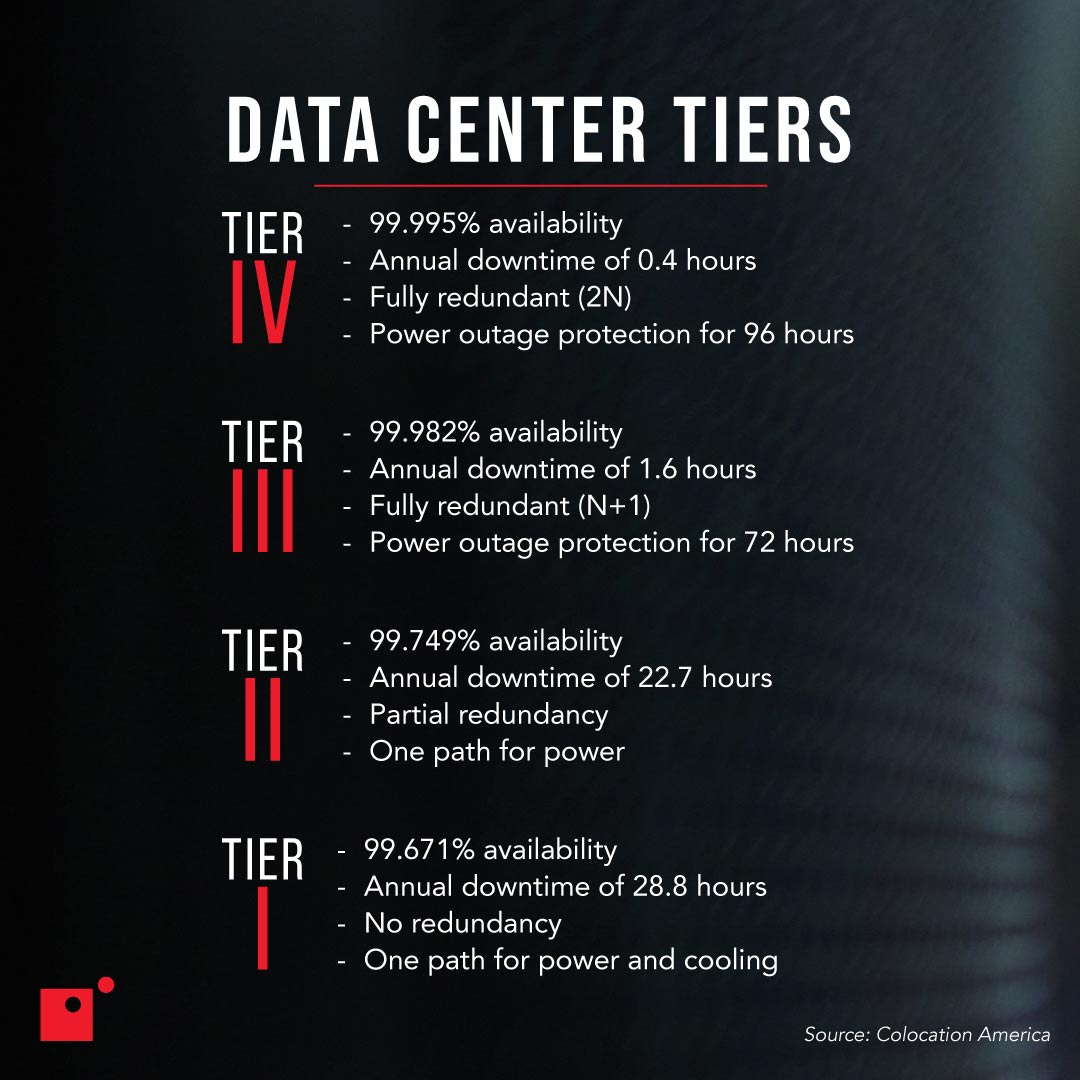Private vs public data center considerations are probably not what most business leaders think about when they’ve decided to adopt cloud solutions for their organization.
We’ve spoken before about how cloud services benefit SMBs, and how important the cloud is for the future of business, but unfortunately, it’s not as simple as pressing a button and “getting in the cloud”, as much as we’d all like that to be the case.
Decision makers must think carefully about what data they want to migrate to the cloud, and what kind of environment they want their different types of data to reside in.
Today, we’re going to look at the options you have for cloud storage and weigh up whether you need a public data center, a private data center, or both.
How can businesses balance IT needs like cloud storage with cybersecurity? Register for Impact’s on-demand webinar, The Difference Between IT & Cybersecurity Standards, to learn how to stay protected.
Public Data Center
What Is Public Cloud Infrastructure?
Public cloud infrastructure is server space (and all the equipment and people required to operate it) that is made publicly available for businesses or people to rent and use. For example, Amazon Web Services is run by Amazon and is essentially a server farm with space to be used by anyone who is willing to pay for it.
When using public data centers and cloud infrastructure, you’re sharing the equipment, but your data is stored separately.
Public data centers are offered with affordability and scalability in mind. Their offerings are usually ”pay for what you need” with the ability to easily ramp up use if necessary.
That’s one of the biggest benefits of public cloud infrastructure: the ease of scaling. Compared to private data centers (owned by individual businesses) where, in order to scale up, you need to purchase more equipment and space.
Examples of public cloud use are software-as-a-service applications like Google Suite or Microsoft 365 where everything is stored digitally and is accessible everywhere.
Public Data Center Security
One of the biggest reasons organizations feel comfortable using modern public data centers is their improved security in recent years.
Reputable providers can offer options that operate on at least Tier 3-rated data centers, or ideally Tier 4.
These kinds of data centers offer very little downtime—as little as 26 minutes per year with a Tier 4 data center—and are fully redundant, meaning if there is a breach, your business operations will not be affected.
Nevertheless, sharing the same tech infrastructure space as other businesses is a concern for many organizations, which is one of the reasons they may favor a private data center instead.
Costs of Using a Public Cloud Data Center
Because public data centers are multi-tenant (meaning many businesses and people use them) the costs tend to be much lower than buying, maintaining, and using your own private cloud infrastructure. With a public cloud, you only need to pay for the space you need, not the space you think you’ll need.
Public data centers typically meet the higher standards of the Uptime Institute’s Tier Certification scale, meaning they have built-in protections against downtime and outages.
Are Public Data Centers Cheaper than Private Data Centers?
In most cases, public data centers would be the cheaper option over private data centers because you aren’t responsible for buying and upkeeping the technology needed. Plus, you wouldn’t need to hire a team to manage the equipment.
Additionally, with scalability in mind, it’s much simpler and cheaper to ramp up data storage usage with public cloud infrastructure because it’s already set up, you just need to pay for more space rather than buying more equipment.
Businesses that have special requirements for data storage—such as special cybersecurity standards or compliance regulations—might find it more cost-effective to invest in private data storage to ensure they avoid fines. However, as a general rule, we find they don’t meet most organizations’ needs anymore and tend not to recommend them.
The Benefits of Using a Public Data Center
- No need to invest in and maintain your own on-premise data center equipment
- Easy scalability means you can quickly increase or decrease usage based on demand
- On-demand usage means you aren’t wasting money on unused and unnecessary infrastructure
- Cost savings on equipment, personnel, power, and space
Private Data Center
A private cloud is virtually the same as a public option, only that it is not offered to the public, and only you have access to it.
When you’re using a private data center, your provider will never use its resources to service other customers, as would be the case when sharing the resources of a public data center.
A private data center also allows you to customize it specifically for your needs and operate it directly, giving you total control over its capabilities and maintenance.
It’s best to treat a private data center the same as the on-premise solution you might be used to, only you don’t have to spend a small fortune on overheads to actually have it in your office.
They still require staffing and maintenance from the customer and are delivered as IaaS and PaaS.
Security and Compliance with Private Data Centers
As we just noted, one of the primary issues organizations have with using solely public data centers is having to share data center resources with other businesses.
While this is not much of a problem with companies that don’t have to worry about their data too much, there are many businesses that are rightfully vigilant about where their data resides and its safety.
This is of course a big concern for enterprises in industries that handle extremely sensitive data, such as healthcare providers and law firms.
For these businesses, private data centers can allow them the higher visibility, data privacy, and security, giving them the peace of mind they need.
This is doubly important when you consider the host of new compliance laws that have been passed and that must be abided by, such as CCPA and GDPR.
Consumers and lawmakers are more sensitive about the handling of data than ever, and these laws will likely continue to expand in scope in the coming years.
In fact, some of the largest corporations in the US, like Microsoft, are already lobbying for an American equivalent to GDPR, and you can bet that these businesses are already keeping their customer data secured in a private data center for when that day comes.
The Benefits of Using a Private Data Center
- Fully customizable for exactly your needs, meaning the best performance
- Total control and oversight
- No sharing of resources with other businesses
Hybrid Data Center Option
The hybrid option avoids the either/or of the private vs public data center debate.
As you may have guessed, a hybrid cloud is when a business utilizes both a private and public data center to cater to its needs.
Organizations that adopt this method will usually use a private data center to host their business-critical apps and data, while using a public data center for basic tasks, apps, and non-sensitive data.
This has advantages for businesses who want the scalability of the public cloud and the flexibility and control of the private cloud.
For example, in a situation where sensitive data urgently needs to be stored on a fully private cloud, you can free up data by temporarily upscaling your public cloud infrastructure and shifting non-critical apps and data there.
This best-of-both-worlds approach is appealing to many SMBs, as it offers most of the advantages of both data center options while still keeping data security strong.
Private vs Public Data Centers: Which Is Right for You?
This question is better framed as “Do you need a private data center as part of your infrastructure?”
Unless your business has special requirements or circumstances that make private infrastructure a better fit, public data centers will offer most of the capabilities and basic security options that an organization will need and it’ll come in at a more reasonable cost.
If you’re still unsure, you can consult with an IT or business data specialist to compile a list of needs that will help shine more light on the best option for you.
The Bottom Line
For most businesses, a hybrid approach will offer the most in terms of affordability, security, flexibility, and scalability. Each solution has merits in its own right, and every organization will have varying needs for them individually. So, it’s not so much a question of a simple private vs public data center dilemma as much as it is finding out which each option can do for you and to what extent you can utilize them for distinct purposes specifically regarding your data.
Choosing where you keep your data and how it’s handled is a crucial consideration for any modern business. Data storage is about more than convenience and accessibility, you also have to take security into account.
To understand more about the balance between IT and cybersecurity standards, register for Impact’s on-demand webinar, The Difference Between IT & Cybersecurity Standards, where our experts walk through how businesses keep their technology, like cloud storage systems, secure.


